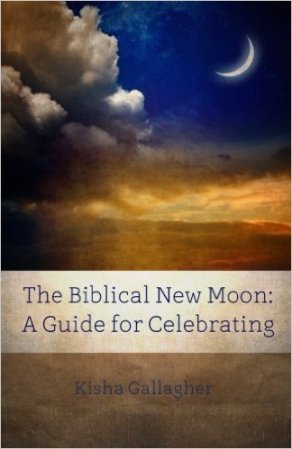Numbers 16:1-18:32; 1 Sam. 11:14-12:22; 2 Tim. 2:8-21; Jude 1-25 (K. Gallagher 2011)
Korach’s Rebellion
Do we sometimes feel that YHWH has been unfair to us? I shamefully have at times. We know from reading the p’shat or literal meaning of this portion that Korach’s desire is wicked and rebellious. Yet, Korach felt that he was a better choice to lead the people. I’ve been around people like Korach; they desire a form of the priesthood also. They are those that always find fault with leadership and as a result they begin to vocalize their opinions to others in the congregation. Whether they realize it or not, like Korach, they are drawing others unto themselves.
Those that participate in such activities usually do so under the banner of holiness or righteousness. They accuse the leadership in place of not being as righteous or as holy as they should be. Perhaps they accuse the leadership of not being as Torah observant as themselves. They forget that those leaders have been allowed to operate and function by YHWH Himself. Sure there are some legitimate reasons to confront a leader – like when there is proof of blatant or unrepentant sin. However, far more often than not, that leader is functioning just as YHWH has planned. Among Messianics, there is usually a family or group of families that comes against the leadership because of particular halachah (specific ways a community keeps a commandment) and not sin. And thus, I must wonder if they are in the rebellion like Korach.
Korach felt that he and all Israel were holy. While it is true that those that follow the Elohim of Israel and keep His commandments are holy, the real question is holy for what? In Hebrew the word for holy is “kadosh;” it means to be set-apart for something. But that something can be good or wicked. Kadosh doesn’t function like our English word for holy. This is why in Hebrew a harlot is also called holy; she is set apart for her task or god. The question is to what or to whom are you set apart? We must strive to be “kadosh l’YHWH,” Holy unto Adonai. There is a big difference.
One striking thing that cannot be overlooked is the condition of the camp at the time this rebellion took place. Last week, the Israelites learned that their lack of fear and trust in the God of Israel would cost their generation the Promised Land. They believed the report given by the 10 negative spies and once again grumbled against Moses and Aaron. The consequences of their sin must have seemed unbearable. Emotions had to be running high in the camp as they pondered their predicament: They would spend the rest of their earthly lives in the wilderness.
With a judgment like that looming over your head, Korach’s message would have been enticing to say the least. Thoughts would race through your mind possibly like the following: “Perhaps, Moses heard wrong. Maybe Korach is right. YHWH loves us too, right? He said we were holy. Look where Moses and Aaron have gotten us—nowhere! It’s not as if Moses and Aaron are perfect. They make mistakes too! Perhaps He will start all over with us! Yes, that’s it! We will get to the Promised Land; glory to God, A-men!” And on and on it would go. You see, it would feel like the right thing to do because it would make your flesh feel better about your lot in life. When YHWH says we don’t get to go somewhere or we don’t get to do something – He means it. We must learn to rest in His sovereignty and FEAR Him and Him alone. YHWH always has us right where He wants us. Whether or not we like it doesn’t matter. Our duty is to fear Him and Keep His commandments and to do so with a spirit of joy! It is possible… with Him. (Mt. 19:26)
Back Up
Let’s rewind this story a bit and ensure that we don’t find ourselves wearing the shoes of rebellion. The first spark of dissent happens after the people (20 years and older) realize that their dreams of entering the Land will NEVER be grasped. People that have had their dreams or agendas crushed are dangerous. Sadly, their fate is a consequence of their own making (sin). Instead of accepting the Creator’s sovereign ruling, the people want someone to blame. They look to the earthly leadership and plan a mutiny, even though the real culprits are their own evil inclinations and mistakes. Do you suppose that we are any different today?
Moses realizes the enormity of the people’s actions and humbly tries to quiet their emotions by bowing with his face to the ground before Adonai (he has a servant heart!) and reasoning with the people. He then devises a plan for all those in rebellion and the current leadership to offer incense before YHWH. By this, Adonai would affirm His choice of leadership. But Moses’ words of wisdom do not appease the people. As a matter of fact, they have become so prideful that they continue the onslaught of accusations against Moses and refuse to come when he requests their presence. (vs. 12)
Instead of looking at the real problem (their own evil hearts), they blame Moses. I believe this occurs again and again in our own assemblies. And, in other areas of our life. In 16:13-14, it becomes obvious that the people have deluded themselves into believing that their punishment is Moses’ fault. While it is most apparent to us that their accusations are completely unwarranted, the people feel justified in their actions.
When issues of halachah surface in our assemblies, often the accusers are simply rebelling as Korach did. They refuse to submit to the ruling of the leadership under the guise of “holiness.” These people, like Korach, really believe that their interpretation of halachah is more divine or biblical than the community’s current standards. And somehow they feel that it is their duty to “set everyone else straight.” They become the Torah police, controlling the people. When the leadership humbly tries to reason with the accusers, they puff-up in pride and usually spew verbal bullets (scripture proof texts) in retaliation. Is this not exactly what Korach and his company did?
You see, like Korach and his cohorts, we often react in similar fashion when we don’t get our way. Like little children, we kick and scream and blurt out false accusations toward leadership. Our evil inclinations can conjure up a myriad of threats, allegations, and blame. If the accused tries to humbly squelch the outrage, the people usually respond as Dathan and Abriam and refuse to make amends. I believe that by this point, pride has such a hold on the person or persons that they cannot repent. Like Korach, pride has completely blinded them to the truth and to reason. Sadly, what results is usually a sharp division of fellowship. But, the leadership cannot allow this spirit to proliferate. Like Moses, they must turn them over to YHWH.
The thing I don’t want you to miss is how “subtle” Korach’s initial argument was. In 16:3, everything Korach said about the people was true: the people were holy and YHWH was in their midst. This was the hook Korach used to drag the people away in his revolt. In reality, the people and Korach didn’t like the judgment YHWH made about their sin. They wanted to leave the wilderness and enter the Land. Realizing that they would never get there with “Moses” as leader, they decided that just perhaps, another leader would get them there.
In our assemblies today, this same thing plays out again and again. The “people” have a set desire (and that desire may not be wrong in and of itself). Upon realizing that the current leadership is not going to get them there or submit to what they perceive is the best halachah; they begin mouthing these things to other assembly members. Some with similar aspirations become carried away with the Korachs. Eventually, there is a “meeting” challenging the leadership. If the leadership refuses their demands, they throw a tantrum and leave the assembly, usually dragging others with them.
This saddens me very deeply. Even worse, looking back, I realize that I have been a cohort with a Korach before. I was so blinded by my “righteous” aspirations that I failed to recognize the authority that YHWH had placed in our midst. What resulted was a split and broken relationships. And guess what? When YHWH’s timing was right, that assembly did walk out the very thing that we aspired to! So the real lacking was my own humility and patience. We forget how powerful pride actually is. Pride’s favorite disguise is a form of godliness, holiness, and righteousness. Rarely is it overtly evil.
Since I’ve had a bad experience with a Korach, I really have to check myself when things aren’t done the way “I” believe they should be. When emotions are running high, we are primed for the enemy to slither in and plant seeds of dissent. We can be so zealous for YHWH, His Torah, and Mashiach, that we often forget the two most vital keys to unity: humility and authority. When everyone is his own master, serving others is nonexistent.
We must get to a place where loving YHWH and loving others trumps our pet doctrines and halachah. This is not compromise, it is humility. Too often our desire to be right far exceeds our desire to love, exercise mercy, and live in unity. Moreover, we have a real issue with authority. Where are the people that are willing to commit, lift up, serve, and stand with today’s leaders? Sure they aren’t perfect; yes they will make some mistakes. If you think (like Korach) that you would be a better leader — you are deluded by your own pride and rebellion.
Or perhaps you believe that you must isolate yourself and family from the main assemblies. Many that do this fear contamination, opposing doctrine. or halachah. This, too, is pride, because the negative side of pride is fear of man and circumstances.
This may sound harsh, but when I look around our “movement”, instead of seeing steadfast believers walking in unity, I see too many fickle and inconsistent people. Today, I doubt that their would be an Aaron or a Hur to help Moses hold his hands up to defeat an Amalek. [1]
This is to our shame. My prayer is that we wake-up and mature. We have to accept the fact that we are each in different places in our restoration. We cannot demand that everyone be exactly where we are in our walk. Nor can we demand that everyone become a cookie-cutter version of ourselves in matters of halachah. If you dislike diversity (in halachah), then you need to reevaluate the creation and get over yourself. Prayerfully find an assembly. Stick with them. Support the leadership. Be steadfast. Serve the community with humility. Crucify your own desires and agendas and flow with the camp.
For which do you believe that YHWH will judge more harshly: having incorrect halachah and submitting to an imperfect leader or refusing to serve and love His people in unity?
[1] Ex. 12:8-13





Right on girl! Your awesome!!
LikeLike
Yasher koach! Shalom! : )
LikeLike